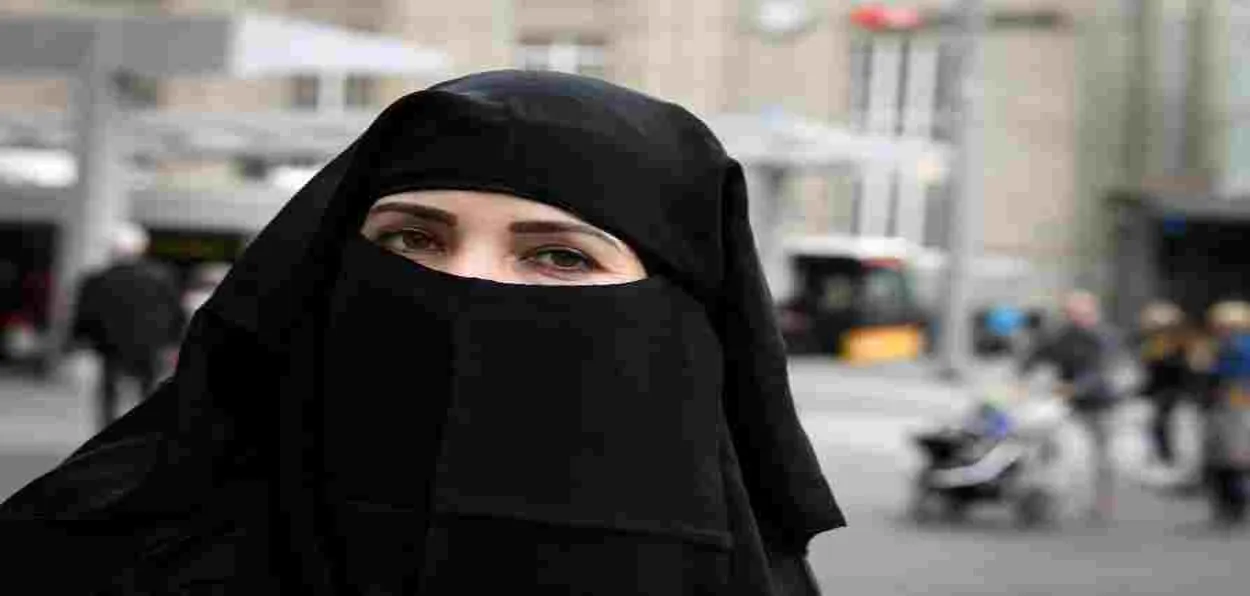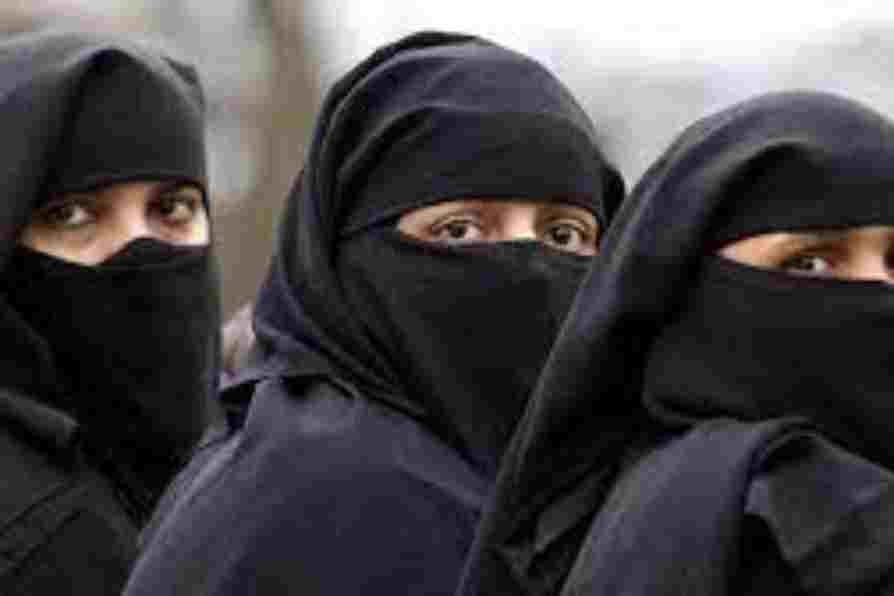
Amir Suhail Wani
As the world wakes up to celebrate International Women’s Day, Islam continues to be blamed for the crimes of patriarchy and misogyny. It has almost now become a cliché to see Islam as a suppressor of Women’s rights, depriving women of their rights, hiding them behind the Pardah, and confining them to the four walls of the household. Muslim women are often represented as symbols of oppression, deprivation of rights, and as voiceless victims of male chauvinism.
It is also asserted that Islam as a religion has contributed significantly to the suppression of Muslim women and given Muslim men an open license to maltreat their women. It has also been observed that the rate of modern education among Indian Muslim women is marginally less and again Islam is blamed for this drawback. Even a learned scholar like William Lane observed that “the fatal point in Islam is the degradation of woman”.
Is it the case that Islam is responsible for all the ills and evils perpetuated against Muslim women in Islamic societies or are there other reasons which contribute to this behaviour and deface and degrade the teachings of Islam on women's rights? That remains the main question to be explored.
To properly understand Islam’s position on women, we must look back to the Quran and the sayings of the Prophet. These two sources form the base of Islam and a proper understanding of Islam to women’s rights can only be gained by deeply scrutinizing these two parallel and historical sources. Let us recall that Islam rose in Arabia at a time when Arab society had touched the ebbs of moral and ethical norms. Women in Pre-Islamic Arab society were treated worse than the cattle and daughters were seen as sources of sham and shame.
Polyandry and sexual promiscuity were the order of the day. Women were treated as objects and were deprived of almost all the fundamental rights like the right to a dignified life, the right to marriage of choice, the right to property, the right to divorce, and many other fundamental rights. This was a society that treated women as non-entity and didn’t bother a bit about their exploitation, dignity, self-respect, or their womanhood.
How did the Quran address this society which had gone to all extremes in betraying the rights of the women? How did Islam address a barbaric nation and women were the direct victims of their barbarity? Let’s start with the Quranic injunctions and then move on to Prophetic sayings to see how Islam emancipated and liberated women from the tyranny and misogyny of men.
The Quran instructs the believing men to “treat them (women) with kindness; for even if you dislike them, it may be that you dislike a thing which Allah has meant for your abundant good” (AL QURAN 4:19). The Quran further announces that “Women shall with justice have rights similar to those exercised by against them, although men have a degree (of advantage) over them. Allah is mighty and wise “(AL QURAN 2:228). Those who read the phrase “men have a degree (of advantage) over them” become anxious and hyper and start targeting Islam for giving men a place higher than women. They don’t understand the social and historical context in which the Quran was revealed when all structures of social and economic power were controlled by men. In situations like these, it was itself a big step to advocate women’s rights, though men continued to exercise wide social and economic influence, which was inevitable.
The Prophet of Islam, whom West blames falsely for suppressing women, was one of the greatest advocates of human rights and this is evident not only from his personal family life but from his teachings on women too. The Prophet of Islam said that “only a man of honour will respect women and only a man of base intentions will debase them” (Kanz Ul Ammal 16/371). The Prophet further said, “The most perfect man of religion is one who excels in character. The best among you is he who gives the best treatment to his womenfolk” (Al Tirmidhi 2/1091). In his last sermon, the Prophet of Islam reminded people to "Fear Allah regarding women. Verily you have married them with the trust of Allah and made their bodies lawful with the word of Allah. You have got (rights) over them, and they have got (rights) over you in respect of their food and clothing according to your means”.
Can we imagine that a prophet who propounded such illuminating teachings about women in an era of darkness was a misogynist or an advocate of patriarchy? We will now come to women's issues, one by one which have been issues of contention in modern times, and try to understand their real import.
Even a cursory look at the conditions of Arabia, when Islam advocated women’s rights will bring home the fact that Islam has been a great protagonist of women’s rights and has advocated and upheld their social integration, intellectual upliftment, and the greatest advocate of their marital, economic, political and other rights. The Prophet of Islam took every possible measure, as was possible within the Arabian society of his time to restore to women their rights and dignity. To measure the Islamic measures of women reform with our 21st-century standards of feminism and liberalism is too much of an injustice. No reformer can reform a society beyond a certain point, and even if he tries, the results may be, more than often counterproductive.
Thus Prophet focussed his attention on the basic rights of women which were subverted by his contemporaries like the property right, the right to divorce, the right to have marriage of one’s choice, and the restoration of other fundamental rights that were absent from the barbaric Arab society.
To take these measures carried out by the prophet and then compare them with the prerogatives of the 21st-century feminist movement and thereby discredit the revolutionary efforts of the prophet is both intellectual dishonesty and historical excess. But in the twentieth century, Muslim scholarship has seen a favourable and positive trend. With the penetration of modernist values in the Muslim lands and minds, an entire array of Muslim feminist scholars like Lyla Ahmed, Kecia Ali, and Amina Wadood among others have taken upon themselves the task of feministic interpretation of Islam. In doing so, they have discovered complete compatibility between the modern-day values of women's liberation and the Quranic injunctions on the equality of genders, gender justice, and the integration of women into the larger socio-scape.
 Muslim Women
Muslim Women
These women scholars, using dextrous scholarship and closer reading of the text have come up with a liberating praxis, which they believe is in continuation of the mission started by Muhammad but forgotten by immediate generations. They are also challenging the classical juristic rulings which underlie gender asymmetry and their direct appeal to the Quran has emboldened them to propagate their cause with fervor and intellectual confidence. But a necessary caveat is to be placed here lest these passages be misunderstood. Islam, no doubt reformatory in its outlook, espouses a certain moral and ethical outlook on which there is no compromise. Thus, while Islam allows women to study and work in environments of co-education and workplaces where there is no gender segregation, Islam strictly warns its followers of promiscuity, licentiousness, immodesty, and immoral behaviour. Thus, whereas Islam grants to men and women liberty and freedom as demanded by evolving social dynamics, it simultaneously takes care to remind its followers of the moral scruples on which it intends to build a decent and civilized life.
Issue of Polugamy
Another throbbing issue, which has engaged both the imagination of the masses and the efforts of scholars is the issue of polygamy. To be precise, Islam doesn’t advocate polygamy but permits taking up to four wives in certain cases and with certain preconditions. Here the word “certain” is important in that at the time when these rulings were revealed, the society was organized on certain patterns in which war and killing were the order of the day.
With the frequent deaths of male folk in a community, women were exposed to marital vulnerability and this increased the chances of social and ethical corruption. Amir Ali is opposed to polygamy lest it is necessitated by social circumstances. He adds that polygamy is as much opposed to the genuine teachings of the Prophet as it is opposed to human progress in general. The need for polygamy in the early centuries of Islam arose on account of certain socio-historical circumstances. The same is the opinion espoused by Sir Syed Ahmad Khan who sees monogamy as the norm and polygamy as an exception.
Muhammad Iqbal, the poet and philosopher goes on to say “The institution of polygamy needs reform. Its permission in early Islam was based on sound spiritual reasons. Moreover, political and economic conditions in early Islam demanded that polygamy should be allowed. But the socioeconomic conditions of modern life demand that polygamy should be abolished”.
The issue of Purdah or veil
The same polyvalence of opinion is found on the issue of Purdah or the seclusion of women. Amir Ali writes Prophet discovered the practice of Purdah among Persian and other cultures and found it a suitable measure of ensuring social modesty and decorum. But, says Ameer Ali, the Prophet never encouraged the seclusion and social isolation of women. Scholars like Chirag Ali, Sir Syed, and Iqbal have favoured Purdah, but they are categorical in maintaining that this shall not impede the social inclusion and the overall progress of women.
The Issue of Dowry
The practice of dowry is a strictly cultural practice that finds no basis or guarantee in religion. On the contrary, Islam binds the menfolk to pay a certain amount of bridal gift to the wife known as Mehar. This is quite contrary to the practice in which women are forced to bring a heavy dower amount to the boy’s house, which is antithetical to the essence and spirit of Islam.
ALSO READ: Ali Indian Muslim women have a stronger voice today: Zeenat Shaukat Ali
Thus we see that Islam is essentially a liberating and emancipator religion when it comes to women's issues. The malpractices of Muslims have defaced the teachings of Islam and are committing wrongs under the banner of Islam which is a despicable act. The need of the hour is to turn to the true teachings of Islam and to rediscover the light that it has to offer.
